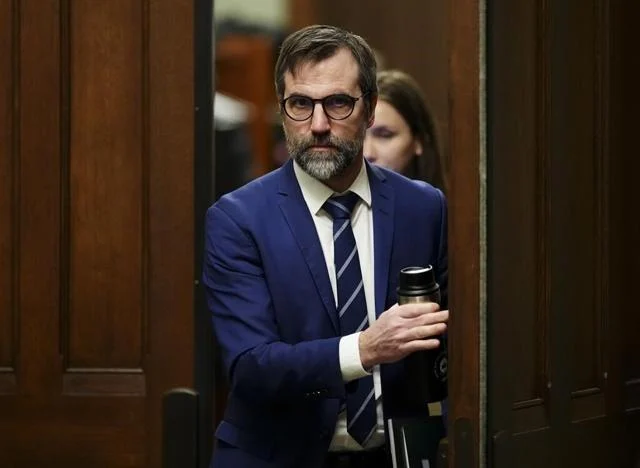
Canada is seeking to get a better handle on how much plastic is being produced in this country by forcing the companies that make it to report annually on what they produce. THE CANADIAN PRESS/Sean Kilpatrick
Canada plans to establish a national registry to monitor plastic production and pollution, according to Environment Minister Steven Guilbeault. This initiative comes as Ottawa prepares to host further discussions aimed at developing a global treaty to combat plastic waste, similar to the Paris Agreement for climate change.
The upcoming negotiations, scheduled to commence on Tuesday, aim to secure international consensus on addressing the world's reliance on plastics. Guilbeault emphasized the importance of countries like Canada understanding their plastic production and disposal patterns to effectively tackle the issue.
Since 2022, Environment and Climate Change Canada has been consulting on the development of a plastics registry, modeled after the system used to track greenhouse gas emissions. The registry will be implemented gradually over the next few years.
Guilbeault highlighted the registry's role in holding plastic producers accountable for their products. It aims to enhance transparency regarding plastic production and usage in Canada, facilitating informed decision-making in addressing the plastic pollution crisis.
The registry will require companies producing or importing plastic in Canada to annually report the amount introduced into the market and the resulting waste generated. This includes data on recycling and reuse efforts versus disposal. Initially, the registry will focus on plastic packaging, electronics, and single-use items, with plans to expand to include other plastic products.
According to Statistics Canada, Canada produced 6.2 million tonnes of plastic in 2019, with over one-third dedicated to packaging. However, the country estimates that more than four million tonnes of plastic waste are generated annually, with less than ten percent being recycled.
The announcement of the plastics registry is part of Canada's broader efforts to address plastic pollution. Guilbeault is expected to unveil additional domestic measures throughout the week as representatives from over 170 countries gather in Ottawa for the global plastics treaty negotiations.
Guilbeault, instrumental in initiating the UN motion that paved the way for the treaty talks, views this as a pivotal opportunity to address the environmental impact of plastic production and consumption. The increasing evidence of harm caused by plastic pollution underscores the urgency of action, as plastics persist in the environment and pose health risks through the release of microplastics.
The proposed treaty aims to set clear targets and timelines for reducing plastic pollution, with a focus on phasing out single-use and problematic plastics. It also seeks to improve recycling practices and address hazardous chemicals used in plastic production.
The Ottawa negotiations mark the fourth round of talks, with previous sessions held in Uruguay, Paris, and Kenya. The goal is to finalize the treaty by the end of the year at the fifth round in South Korea.
Dr. Adil Najam of the Worldwide Fund for Nature stressed the need for agreement on banning problematic plastics and chemicals to achieve a comprehensive treaty. He called for formal talks between the Ottawa negotiations and those scheduled for November to expedite progress.
While there is consensus on certain aspects such as banning single-use plastics and enhancing transparency in labeling, specific details, such as which chemicals to ban, remain subject to further discussion among participating countries. Guilbeault acknowledges the need for additional dialogue to clarify these details and refine the treaty framework.















